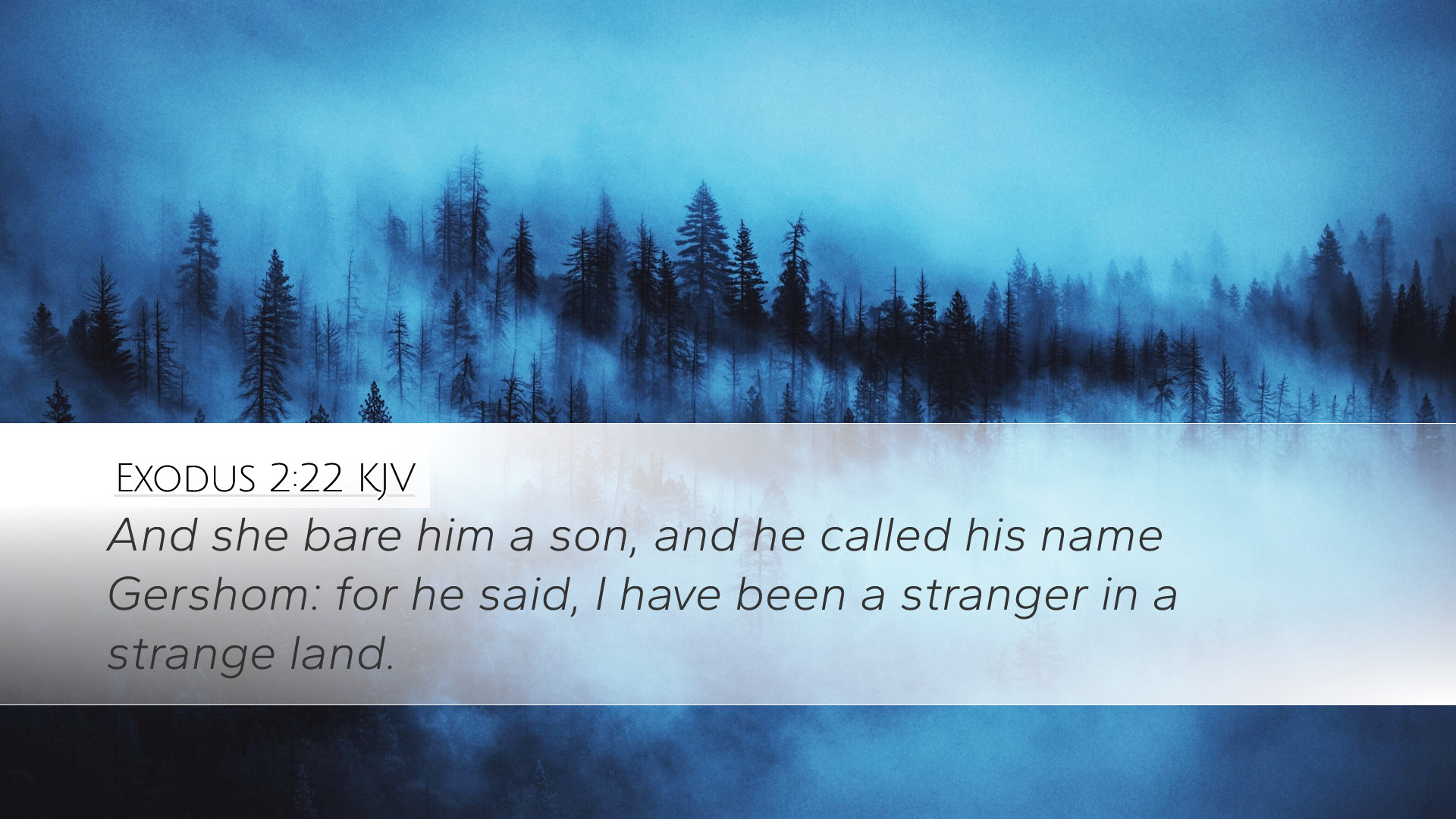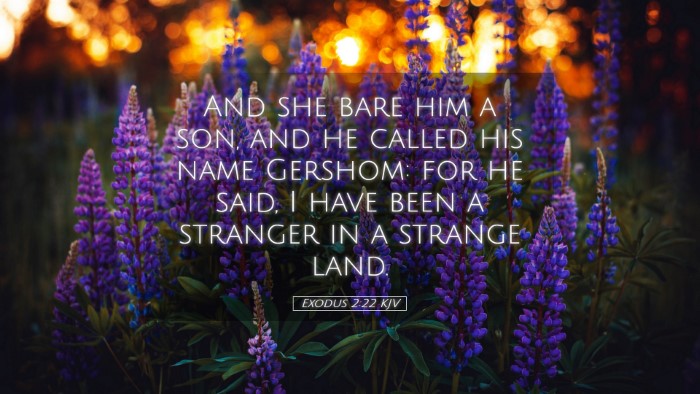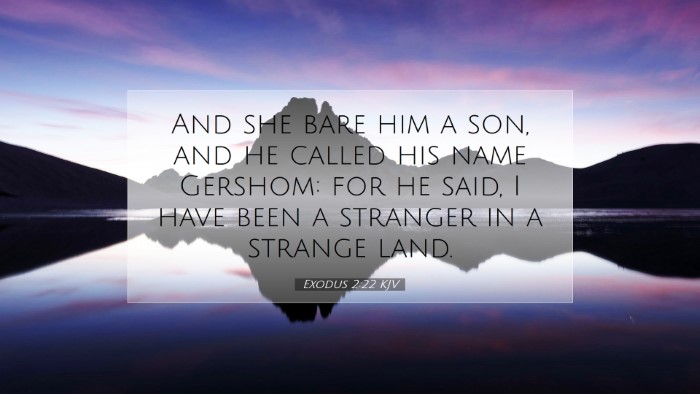Exodus 2:22 Commentary
Verse Context: Exodus 2:22 states: "And she bare him a son, and he called his name Gershom: for he said, I have been a stranger in a strange land." This verse highlights a significant moment in the life of Moses as he begins to establish his family and identity after fleeing Egypt.
Introduction to Exodus 2:22
Exodus 2 recounts the early life of Moses, his birth, upbringing in Pharaoh's palace, and eventual flight to Midian after killing an Egyptian. In verse 22, we see Moses in a new phase of life, marrying and becoming a father. The naming of his son, Gershom, is particularly poignant as it reflects Moses' feelings of alienation and his new identity.
Theological Significance
This verse serves as a crucial touchpoint in understanding Moses' evolving identity. Commentaries by Matthew Henry and Adam Clarke highlight the tension between Moses' Hebrew heritage and his upbringing in an Egyptian royal household. His statement "I have been a stranger in a strange land" resonates with the broader theme of Israel's own status as strangers in Egypt.
1. Alienation and Identity
Albert Barnes comments on the significance of the name Gershom, which means "a stranger." This choice reflects not only his personal experience but also the larger narrative of God's people. Moses' feeling of being an outsider frames his future leadership role as a deliverer of Israel, who would also be taken from a land of oppression and alienation.
2. The Role of a Father
Moses’ naming of his son also serves practical implications. As a father, he is establishing a legacy amidst his experience of exile. Matthew Henry highlights that the act of naming in scripture often signifies authority and purpose; thus, naming Gershom underscores Moses’ acknowledgement of his predicament, yet also his resolve to build a family and play a pivotal role in God's plan.
Commentary Insights
- Moses and Midian: Moses fled from Egypt and sought refuge in Midian, a crucial transition illustrated by this verse. Adam Clarke notes the importance of Midian as a place of preparation for Moses, setting the stage for his eventual return to lead the Israelites out of bondage.
- Recognition of God's providence: Through the birth of Gershom, we see the providential hand of God at work, guiding Moses toward his future. Both Henry and Barnes emphasize that even in exile, God is orchestrating events for His purpose.
- Stranger in a Strange Land: This phrase reflects a broader human experience of alienation. Barnes reflects on how many believers may resonate with this state of being as they navigate a world that often feels foreign to their faith and values.
Applications for Today
For pastors, students, and theologians, Exodus 2:22 provides rich material for reflection and application:
- Identifying in Exile: Much like Moses, many believers find themselves in positions where their faith is challenged by the culture around them. This text invites a conversation about faith identity in the modern world.
- Parenting and Faith Formation: The significance of naming children opens discussions on the spiritual implications of parenthood. Just as Moses named Gershom, parents today are called to instill a sense of identity and faith in their children.
- Hope Amidst Trials: The context of Moses' feeling like a stranger offers hope for those in difficult circumstances. God's plans unfold in unexpected ways and often through our struggles.
Final Thoughts
In summary, Exodus 2:22 encapsulates a pivotal moment in Moses' journey and underlines larger themes of alienation, identity, and divine providence. The insights derived from Matthew Henry, Albert Barnes, and Adam Clarke facilitate a deeper understanding of how the experiences of an individual can mirror the broader narrative of community and faith.


